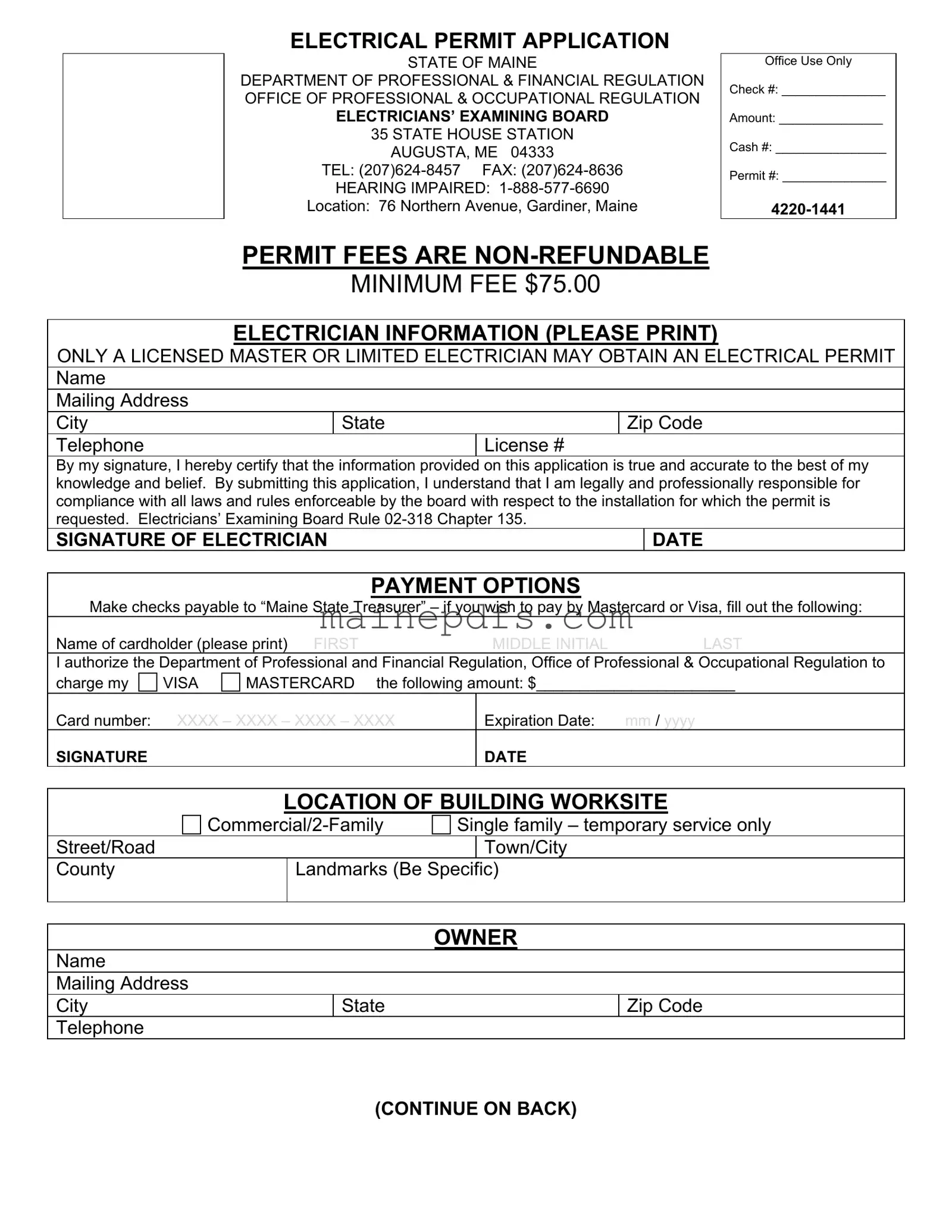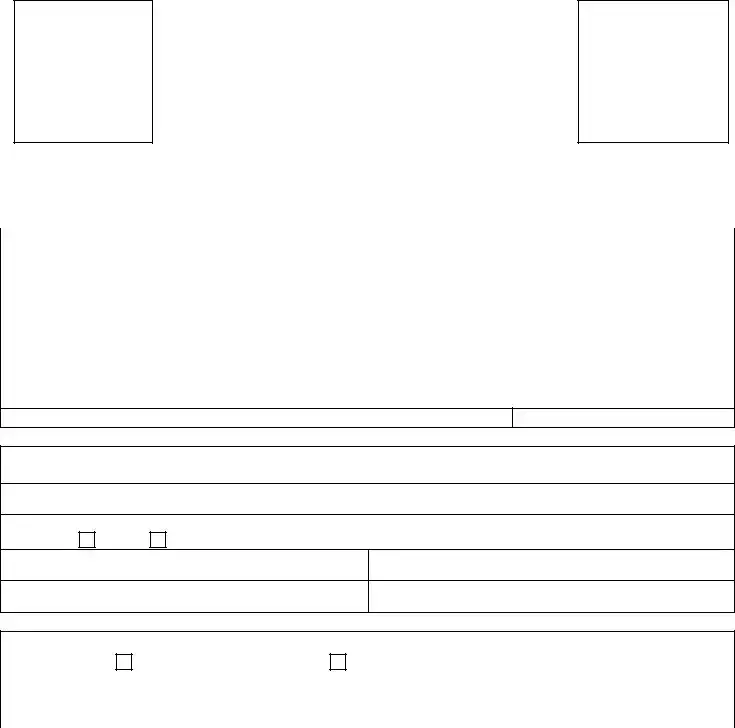The Building Permit application found in many municipalities bears a striking resemblance to the Maine Electrical Permit form. Like the electrical permit, the building permit application requires applicants to provide basic information such as location, owner details, and the scope of the project. Both forms are crucial for ensuring that construction meets local codes and regulations, and they often require a detailed description of the planned work. The fees associated with these permits vary based on the scale and type of project, emphasizing the necessity for compliance with safety standards.
Plumbing Permit applications are also similar, focusing on installations within a property that require adherence to specific codes for water and waste systems. Just as the electrical permit necessitates details about the electrical work to be done, plumbing permits ask for specifics about the plumbing projects, including the types of fixtures to be installed or repaired. Both permits play a vital role in maintaining public health and safety by requiring professional oversight of critical systems in buildings.
The HVAC (Heating, Ventilation, and Air Conditioning) Permit application parallels the electrical permit in its approach to regulating the installation and modification of systems within a structure. Applicants must provide detailed information regarding the location, the extent of the work, and compliance with energy codes. Both forms are integral to ensuring that installations are performed safely, efficiently, and in accordance with state and local codes.
Demolition Permit applications, although primarily concerned with the removal rather than the installation of systems or structures, share the commonality of requiring location details, property owner information, and a description of the scope of work. These permits ensure that demolition work is carried out safely, with minimal risk to the public and the environment. Similar to the electrical permit, it serves as a regulatory tool for overseeing significant changes to properties.
The Zoning Permit application is another document closely related to the Maine Electrical Permit form. Zoning permits focus on ensuring that proposed uses and structures comply with local zoning ordinances. They require similar information regarding the project site and specifics about the intended use or construction. Though focusing on different aspects, both permits are essential for regulatory compliance and urban planning.
The Sign Permit application is designed for the oversight of outdoor advertising and signs. Like the electrical permit, it requires details about the location, the owner of the property, and specifics of the project, such as size and illumination, which often involves electrical work. Both permits ensure that installations meet aesthetic standards and safety regulations.
Fire System Permit applications, which encompass both detection and suppression systems, share important similarities with the Maine Electrical Permit. Details on the location, project scope, and compliance with safety standards are critical components of both permits, highlighting the coordination between different regulatory areas to ensure public safety in all aspects of building construction and maintenance.
The Sidewalk Café Permit, though not directly related to construction, requires applicants to provide detailed plans regarding the use of public space. This permit application process, like the electrical permit, ensures that proposed uses are in compliance with local codes and do not pose a hazard to public safety.
The Special Events Permit, used for the planning of public gatherings or events, often involves reviewing the impact on traffic, security needs, and compatibility with public spaces. While focusing on event planning rather than construction, this permit process similarly ensures that all necessary considerations for safety and compliance are addressed upfront, mirroring the preventative intention behind the electrical permit.
The Fence Permit application, which regulates the erection of barriers on private property, asks for location and owner information, much like the Maine Electrical Fund form. Both types of permits ensure that the planned work does not infringe upon public rights or safety and adheres to local ordinances, establishing a framework within which property improvements must fit.



